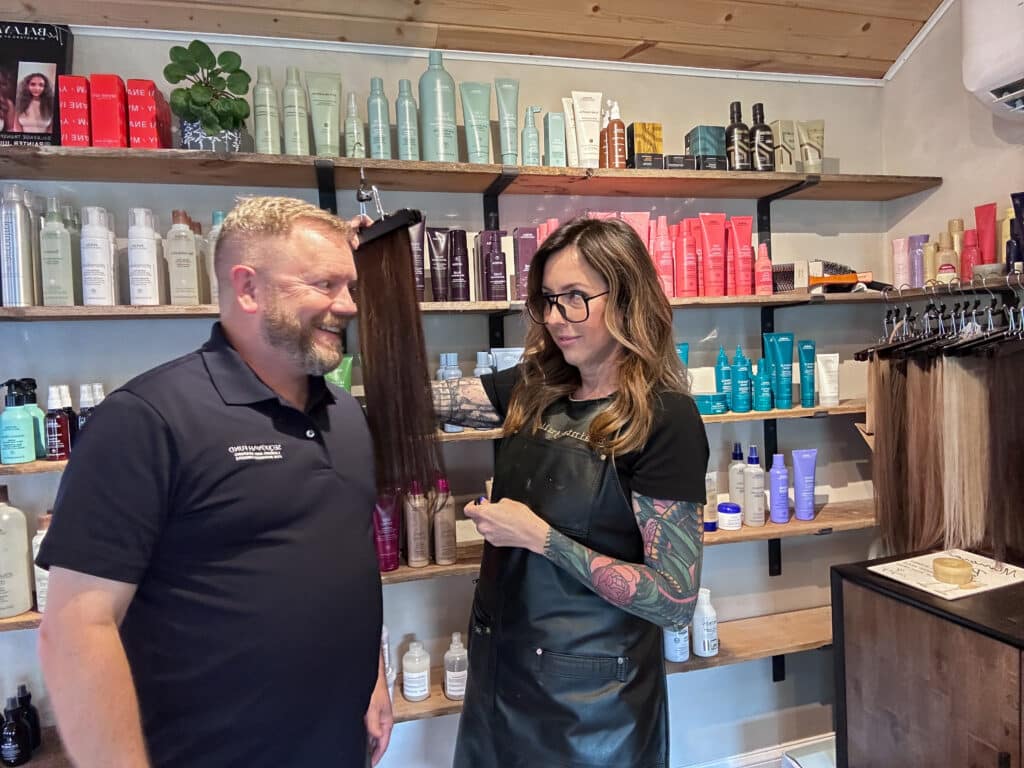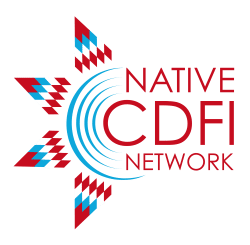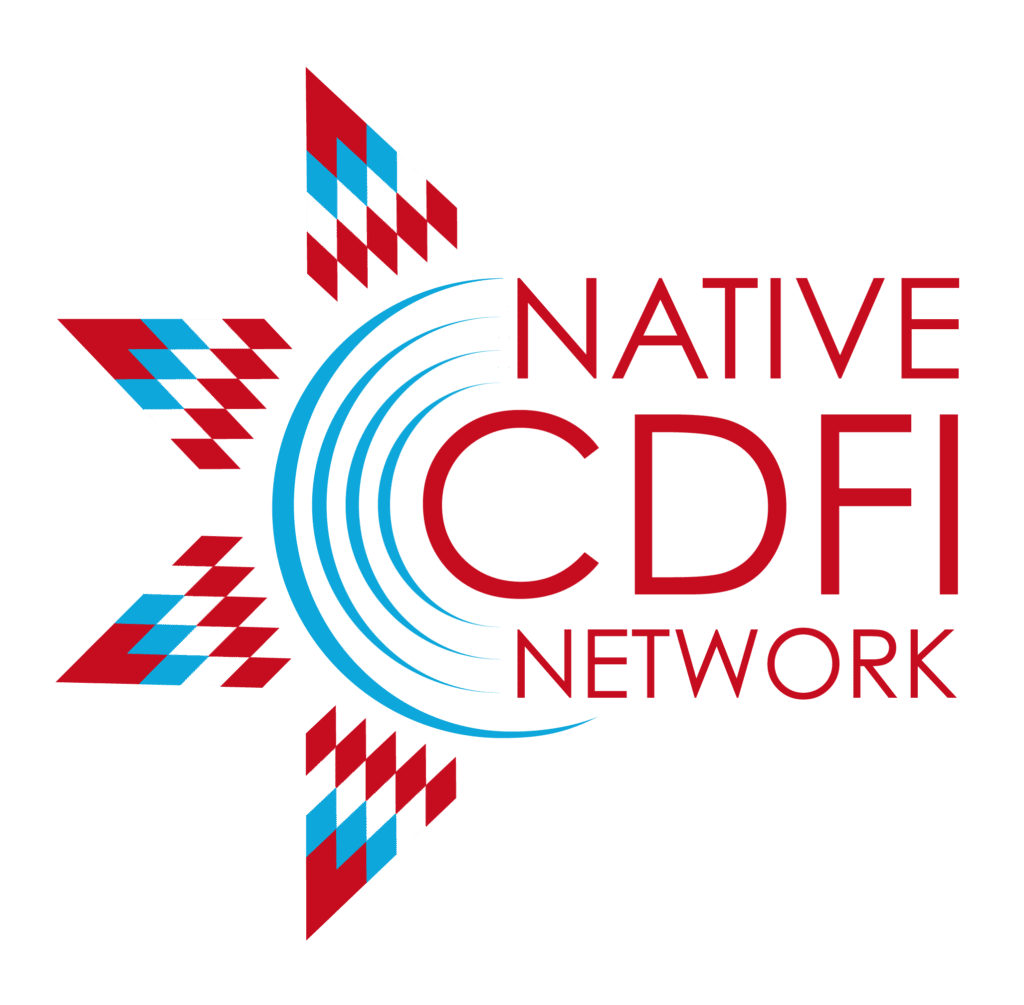Julie Painter, an enrolled member of the Eastern Band of Cherokee Indians, describes her decision to buy a business at age 25 back in 2008 as “a little bit of delusional insanity.”
Painter was finishing cosmetology school while working full-time at Visage Salon in Sylva, N.C. She was planning on continuing work there after she passed her boards and became fully licensed.
That’s when the opportunity to buy the business presented itself to her. Her boss and the salon owner were leaving to work in education, and the salon would close. Painter’s options were to work at a salon two hours away in Asheville — or buy Visage and become a business owner.
“There were two options in front of me,” Painter said. “And I went with option two.”
Painter admits that she “was in a terrible place for starting a business” at the time. She had a low credit score and no experience running a business, but she was determined.
“We had to succeed,” she said. “I either had to sink or swim. I had the passion for the industry, but I didn’t have the elements that a traditional bank would look for.”
Painter turned to the Cherokee, N.C.-based Sequoyah Fund, Inc. a certified Native CDFI serving citizens of the Eastern Band of Cherokee Indians in North Carolina with lending products, small business coaching, and financial literacy training.
Since its beginnings in 1996 as a revolving loan fund, Sequoyah Fund has issued more than $22 million in small-business loans.

Russ Seagle, the CEO of Sequoyah Fund, said Painter’s determination — he calls it “grit” — is exactly what they look for in small-business clients.
“I think grit is one of those often overlooked qualities in an entrepreneur,” Seagle said. “When we look to lend money to somebody, we’re not looking for a perfect credit score — we’re looking for somebody who has what I would call the ‘gotta wanna.’
“You gotta want it more than anything, you gotta be willing to put in the hours, you gotta be willing to put in the work, and you gotta be willing to adapt and overcome, and make things happen when things don’t go your way.”
Sequoyah Fund gave Painter an initial loan to purchase the business, and she was off and running. She quickly became an in-demand balayage color specialist — a technique involving freehand painting highlights onto hair — with her calendar booked out 6 to 8 weeks in advance.
“She really has made herself an integral part of the business community,” Seagle said.
In 2020, the salon industry was rocked by COVID-19 and the resulting shutdowns. Like other salons across the state, Visage was shut down for three months. Painter worked hard to keep connected with her client base, opening up for online product orders and delivering them herself.
When it came time to expand, Painter turned to Sequoyah Fund to finance the purchase of her building and a construction remodel loan to renovate the space with hardwood floors, track lighting and stylists stations.
Now with five employees, Painter is gearing up to start teaching colorist classes. She credits the relationship she built with Sequoyah Fund for her rise from inexperienced and credit-challenged student to successful small-business owner and employer.
“They’ve been instrumental in every step of our business and every pivot of my business,” Painter said. “Without the Sequoyah Fund, I don’t know that we really would have made it through all of the things that we did make it through … the housing crisis, COVID, and all of those things that we had to pivot from.”
Difference Makers 2.0 is a new yearlong series that highlights how Native community development financial institutions (CDFIs) work alongside their small business clients to accelerate change and create economic opportunities in Native communities. Join the Native CDFI Network and Tribal Business News as they shine a spotlight on the people accelerating economic change in Indian Country. Read the stories here and be sure to tune into the Difference Makers 2.0 podcast.

